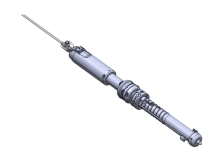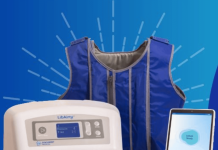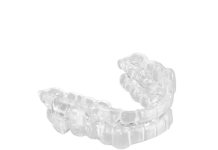Stimvia announced it completed a clinical study of its peroneal electrical transcutaneous neurmodulation (peroneal eTNM) technology.
The Czech Republic-based company delivers peroneal eTNM through its Uris device to treat symptoms of Parkinson’s disease. It had its results published in the journal Clinical Parkinsonism & Related Disorders, highlighting the safety of the non-invasive treatment. The company said results suggested a positive impact on both symptom relief — particularly with tremor — and patient quality of life.
Related: Simpson Interventions reports first patient treated with Acolyte catheter
Stimvia saw its study evaluate 12 patients with Parkinson’s also taking Levodopa. This commonly prescribed medication alleviates symptoms but tends to lose effectiveness over time, the company said. It also produces more side effects over time, according to Stimvia. The study set out to determine if Uris could serve as a meaningful complement to standard treatment.
Over six weeks, participants used Uris for daily 30-minute stimulation of the peroneal nerve behind the knee. Six weeks without stimulation followed to observe whether positive effects would persist after treatment. Daily functioning saw the greatest benefits, as patients experienced less physical discomfort, improved ability to perform routine activities, and an overall increase in quality of life—especially due to a significant reduction in tremor. These improvements surpassed the threshold considered clinically significant, meaning they had a real, measurable impact on patients.
Stimvia said that 80% of patients from the pilot study voluntarily chose to continue using Uris after the initial phase. It now has preparations underway for a larger international clinical trial this fall.
“With the combination of Levodopa and non-invasive neuromodulation, we aim to slow the progression of the disease and extend patients’ quality years of life, without the need for invasive procedures such as deep brain stimulation. We’re already seeing that Uris may be a more suitable option in the early stages of Parkinson’s, thanks to its non-invasive nature, ease of home use, and strong safety profile,” said Lukas Doskocil, CEO of Stimvia.




